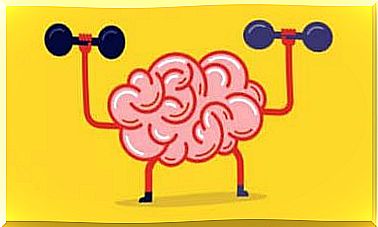8 Important Qualities To Be A Good Psychologist

Psychology is the science that studies individuals, with all their behaviors and experiences. You will probably notice that it is a very broad field that requires a very specialized type of training. This is why you, no matter what your specialization is, must have certain basic qualities and skills to be a good psychologist.
According to medical ethics, as a professional psychologist, you must always be respectful, responsible, honest, sincere, careful and competent. You must also guarantee that the treatments are objective and scientific. But being a good psychologist goes beyond just having these qualities.
Empathy
It is important for a psychologist to know how to put himself in the patient’s shoes. They must have the mental strategies and tools to understand this person’s fears and needs and the specifics of their situation. Only when they have reached that level of understanding will they know how to handle the matter and be able to help them.
Many people seem to think that empathy is a kind of mysterious quality. But psychologists have understood the human mind so deeply that they can reshape their ideas around the patient’s.
What this means is that they can understand all other ways of thinking, no matter how different they are from their own. It helps them to give the same meaning to the ideas of others as they give their own.

Open mind
Being a good psychologist means that you do not have prejudices, stereotypes or predetermined beliefs and beliefs. This means that you must be open to new ideas, things that are different or unknown to you.
This quality is great for everyone to live life to the fullest, but it is absolutely necessary for psychologists. You never know who’s coming to your office. So you must always be open to getting to know them: their essence, culture, interests and ideas.
To reach this level of tolerance, you must have gotten out of your comfort zone before. It is the place where you feel protected and protected by familiar things. So it is important to ask questions, discover and dig deeper into things. You must also accept that all the things around you can be a real source of inspiration.
Safety
This has many similarities with openness. Security means that a good psychologist is confident in himself and his professional abilities. If you do not seem confident, it will be difficult for you to give that feeling to the person who comes to you for help.
That does not mean you have to be pretentious, overly direct or completely insensitive. This means explaining the steps the patient must take in a clear, consistent and safe manner. Things that will hurt them are hesitation, being vague, sending mixed messages or looking at them as inferior.
Introspection
To be very open-minded, a good psychologist must do the very important work of introspection. It means looking at yourself, analyzing yourself and understanding yourself. Only by becoming better acquainted with yourself will you be able to deal with your mental states.
Availability
This quality is a place between comfort and understanding. It is important for the patient to feel comfortable around their psychologist. Then they will be able to tell them about their situation, problems, intentions and deepest secrets.
The other quality that goes into this is empathy, which was number one on our list. These two things together create accessibility. This is the thing that makes it easy and natural for your patients to tell you about their problems.

Analytical skills
You need to know how to interpret what a patient is saying if you want to do something. Since you can not just cut off the conversation, you need to know how to choose the really important pieces. You need to stick to what is important and know what to leave out.
This ability will also help you apply better mediation techniques, and it will ensure successful treatment. It is also an important part of coming up with a treatment plan and evaluating the results.
Good communication
This can be one of the biggest challenges for psychologists in their daily practice. This is even more true if they are not very experienced. Knowing how to bring all the theoretical knowledge to real matters is not always easy.
Therefore , it is absolutely necessary to master certain types of communication and social skills if you want to be a good psychologist. Getting better at this art and knowing how to interact with people are basic qualities.
For example , it is good to know how to come up with questions during a session, or pick up something that may be the main trigger for a disorder or neurosis. You must also be able to organize the time well in your sessions, and make sure that you use these minutes efficiently.

Knowing how to listen
If you can create a relaxed environment in the office, you will already be halfway there. If you can create a sense of intimacy, the other person will be able to talk to you calmly and honestly. Knowing how to listen always means having a committed and open attitude and showing interest in what they say.
In other words, you have to be a good listener and show them that you are. So it is a good idea not to interrupt. Let them speak freely. That way, they can answer their own questions when they have said them out loud.
Allowing for silence is also very informative. You should see how a patient experiences these breaks. Their hand movements, their posture, their expression: how do they work in these moments? All this says something.
As you can see, being a good psychologist is not just about having certain skills. It also means knowing how to use them.









